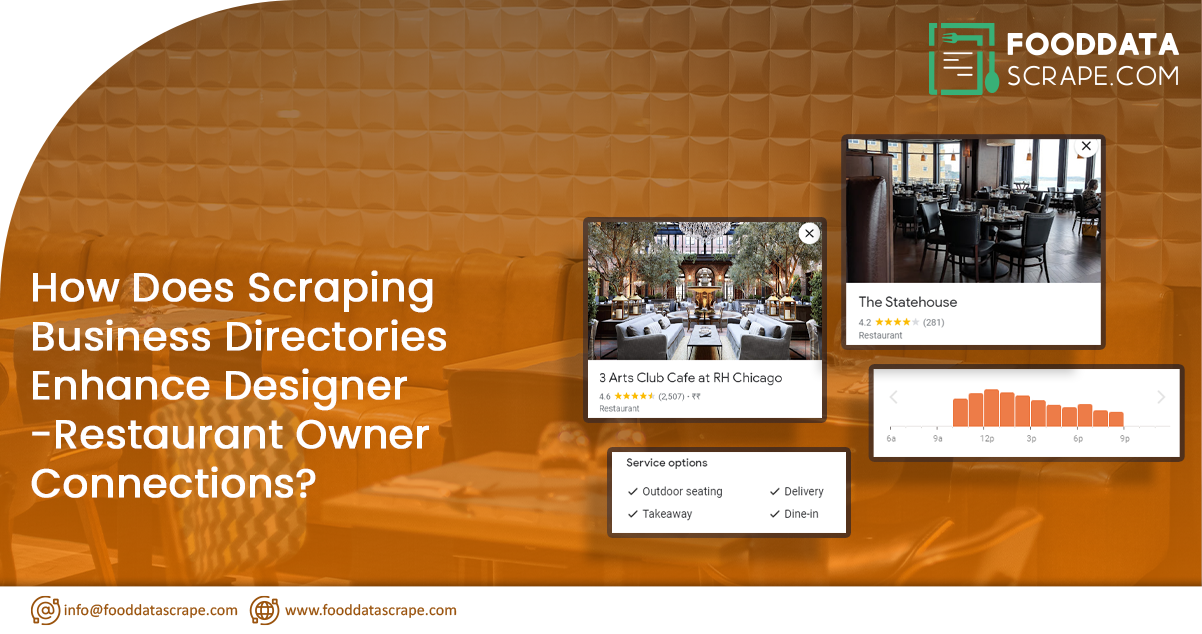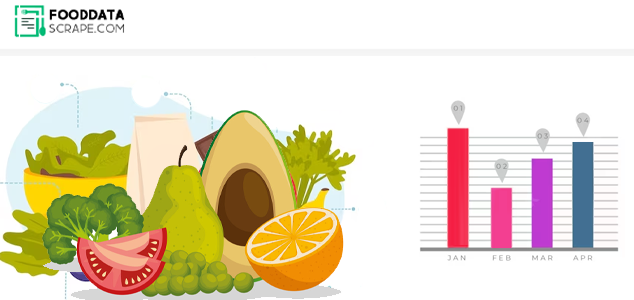In the bustling world of restaurant ownership, establishing a solid online presence is paramount for success. Whether crafting captivating menus, designing eye-catching logos, or creating user-friendly websites, reaching out to restaurant owners proficient in English and Spanish requires a strategic approach. Fortunately, the advent of scraping restaurant data techniques offers a powerful solution to this challenge. In this comprehensive guide, we'll explore the intricacies of scraping across business directories, social media platforms, and news websites to uncover restaurant owners and pave the way for fruitful collaborations.
Understanding Web Scraping: A Brief Overview

Before delving into the specifics of scraping various online platforms, it's essential to understand the concept of web scraping. At its core, web scraping involves automated data extraction from websites. By leveraging specialized tools and techniques, users can collect valuable information from web pages and transform it into structured datasets for analysis and insights.
Scraping Business Directories: Tapping Into a Wealth of Information
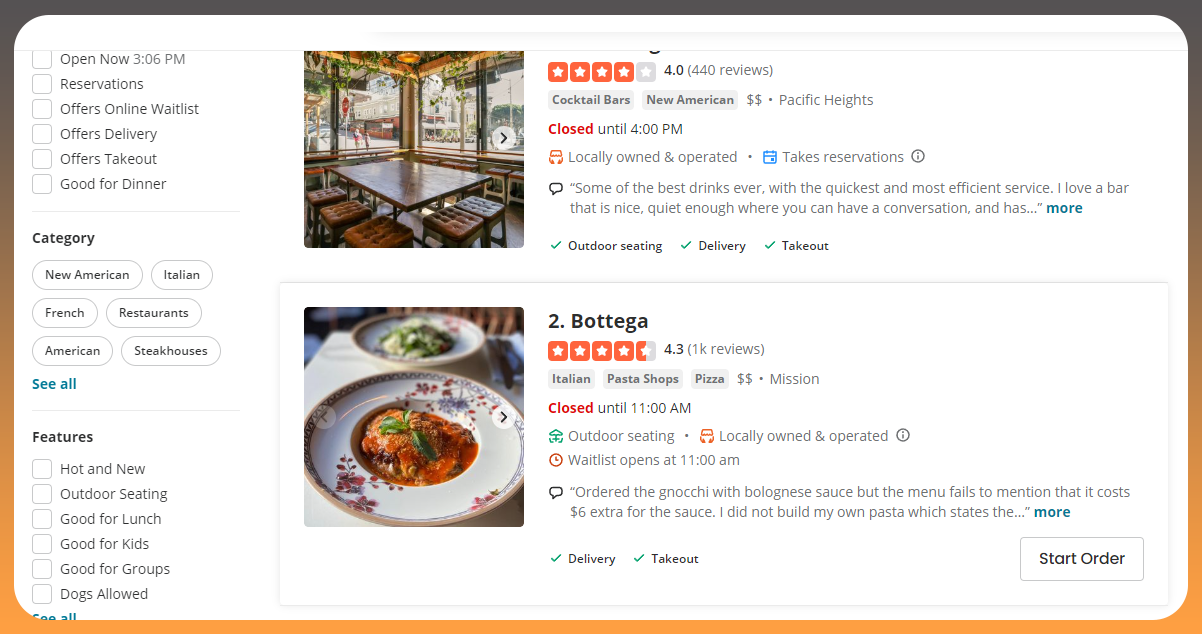
Business directories serve as treasure troves of information for aspiring designers seeking to connect with restaurant owners. Platforms like Yelp, Google My Business, and Yellow Pages house extensive listings of restaurants, complete with contact details, reviews, and other pertinent information. To scrape data from business directories, users can employ tools equipped with features to navigate and extract data from multiple pages efficiently. By targeting specific categories and filtering search results, designers can compile a comprehensive database of restaurants in their desired locations. Scraping business directories empowers designers to forge stronger connections with restaurant owners by providing access to pertinent information. It enables targeted outreach efforts and personalized services tailored to each restaurant's unique needs. By efficiently compiling comprehensive databases of potential collaborators, designers can streamline communication, offer tailored solutions, and establish themselves as valuable partners in enhancing restaurant businesses' online presence and success, fostering mutually beneficial relationships.
Scraping Social Media Platforms: Uncovering Hidden Gems
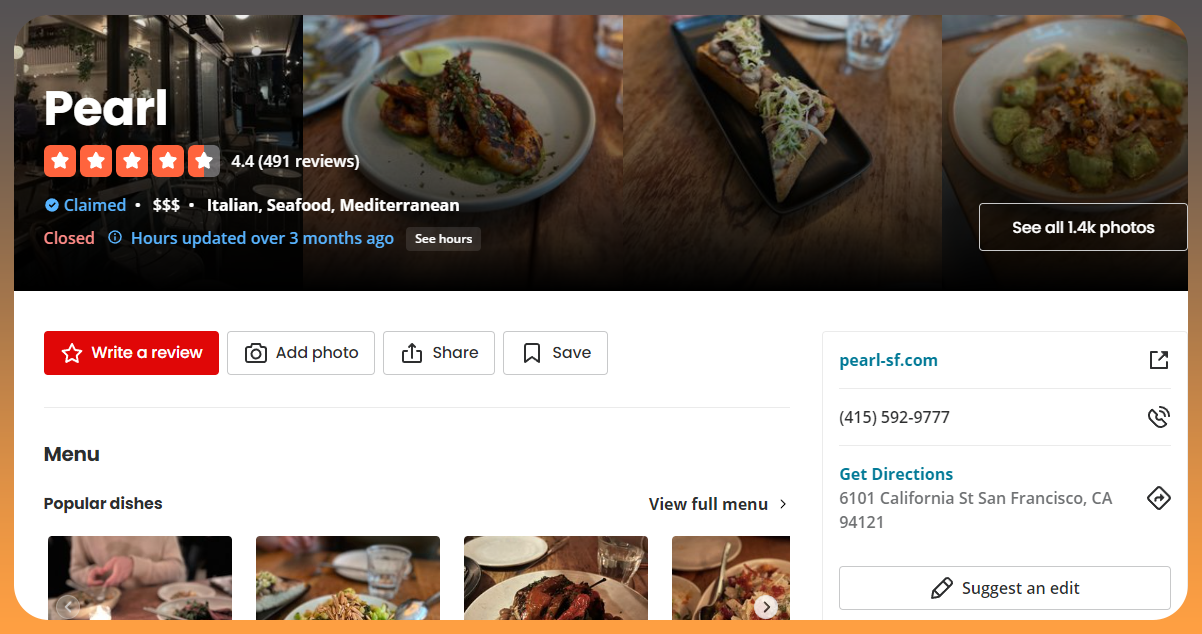
In today's digital age, social media platforms connect businesses with their target audience. Platforms like Facebook, Instagram, and Twitter offer valuable insights into the operations and preferences of restaurant owners. Through web crawling, designers can extract data from restaurant profiles, including contact information, posts, reviews, and follower demographics. Additionally, leveraging advanced scraping techniques, such as sentiment analysis, can provide valuable insights into customer sentiment and preferences, enabling designers to tailor their services accordingly.
Scraping News Websites: Staying Ahead of the Curve
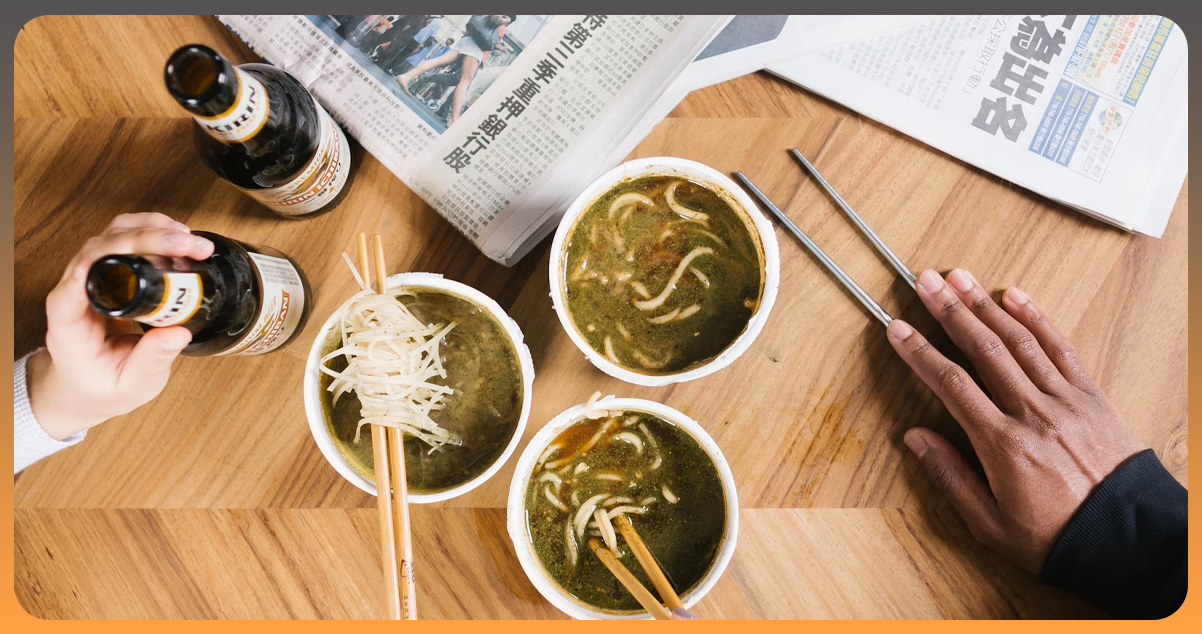
News websites serve as invaluable sources of information for staying abreast of industry trends, developments, and emerging players. By scraping data from news articles, press releases, and industry reports, designers can identify new restaurant openings, closures, and trends shaping the culinary landscape. Tools equipped with natural language processing capabilities can parse large volumes of text to extract relevant information, such as restaurant names, locations, and critical events. Additionally, leveraging sentiment analysis can provide insights into the public perception of restaurants, helping designers tailor their outreach efforts effectively.
Best Practices for Ethical Web Scraping

While web scraping offers unparalleled opportunities for gathering insights, conducting operations ethically and in compliance with legal regulations is essential. Here are some best practices to adhere to:
Respect Website Terms of Service: Before scraping data from any website, review and adhere to the website's terms of service and robots.txt file to ensure compliance with usage policies.
Limit Requests: Avoid overwhelming websites with high requests, as this can strain server resources and potentially lead to IP blocking or legal repercussions.
Use Proxies: Employ proxy servers to distribute scraping requests across multiple IP addresses, reducing the likelihood of detection and mitigating the risk of IP blocking.
Monitor Changes: Regularly monitor websites for changes in layout, structure, or terms of service that may impact scraping operations and adjust scraping parameters accordingly.
Observe Copyright Laws: Respect intellectual property rights by refraining from scraping copyrighted content without permission, particularly images, articles, and proprietary data.
To perform web scraping across business directories, social media platforms, and news websites to find restaurant owners, we will use Python and the BeautifulSoup library for parsing HTML and the requests library for making HTTP requests. Below are the scraping steps, along with sample code snippets:
Scraping Business Directories:
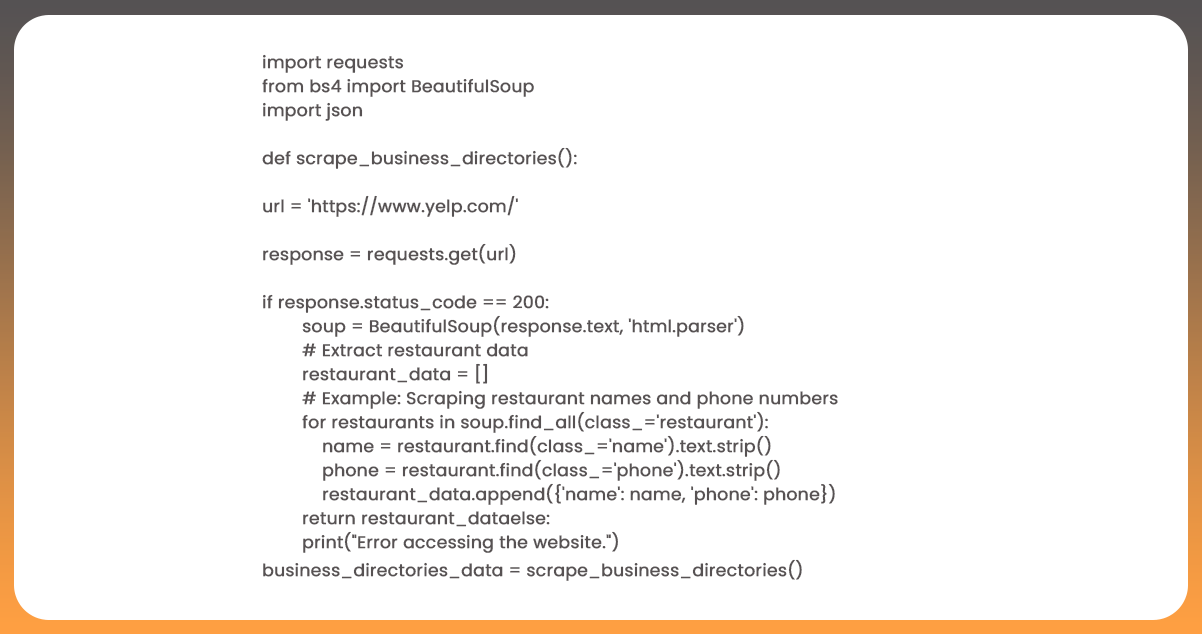
Scraping Social Media Platforms:
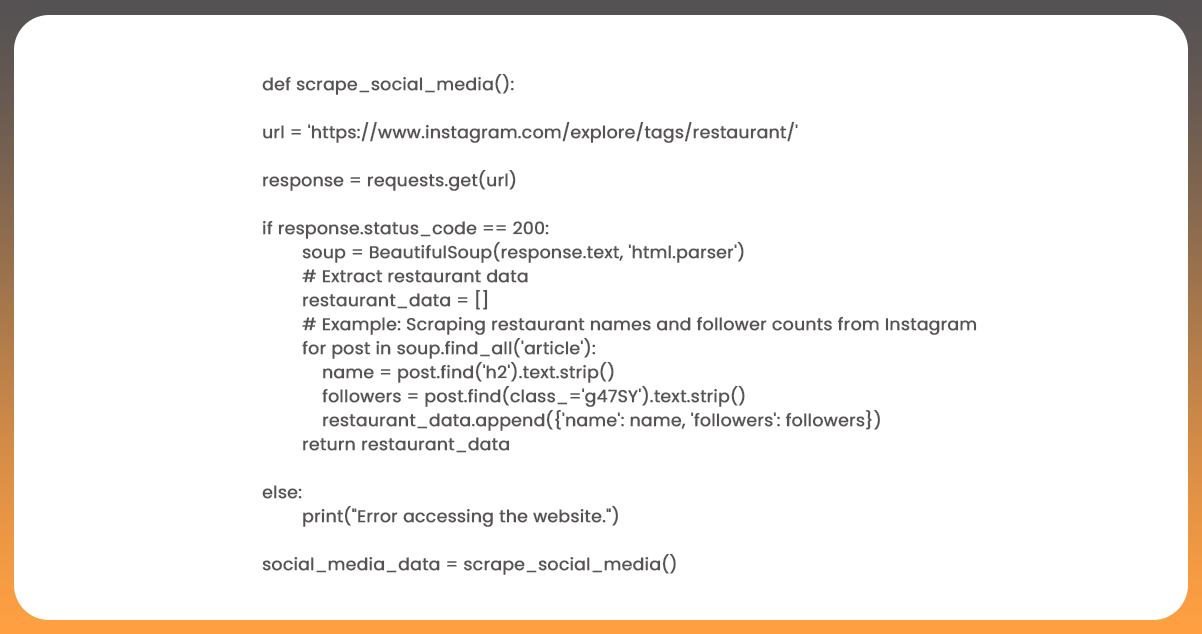
Scraping News Websites:
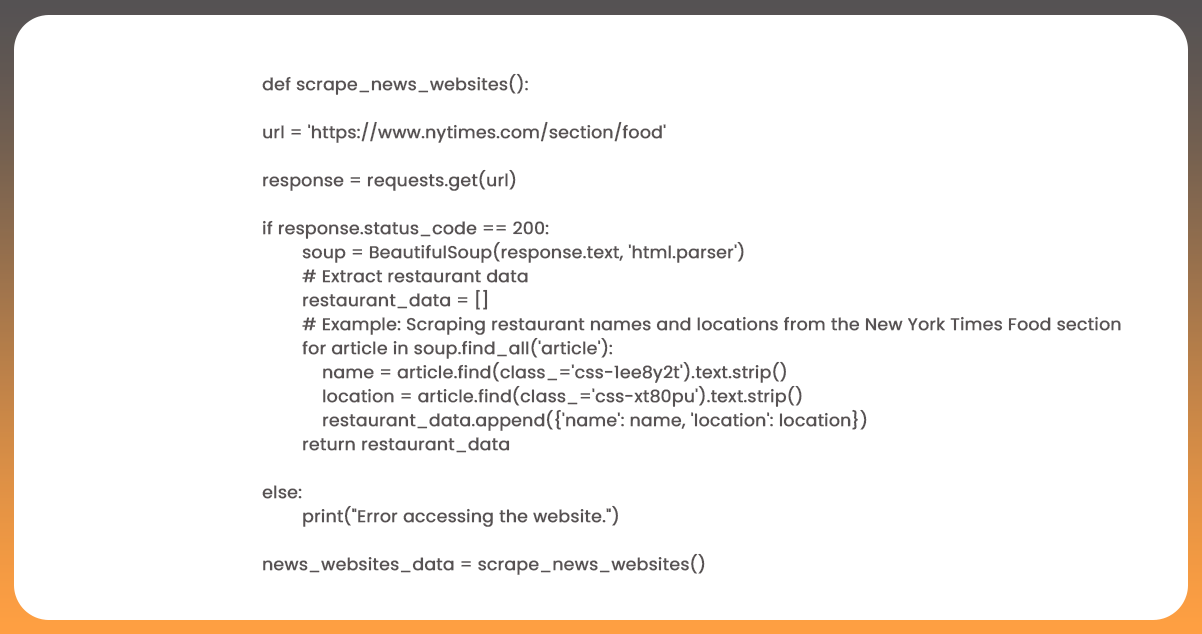
Delivering Data in JSON Format:
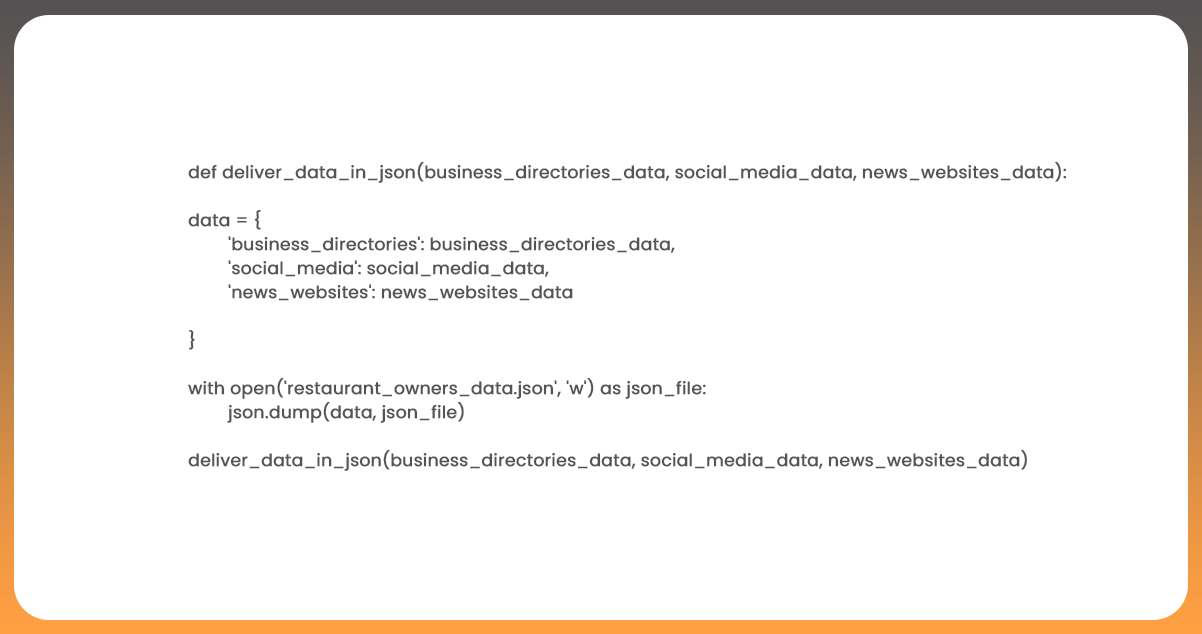
This code scrapes restaurant data from business directories, social media platforms, and news websites and delivers the collected data in JSON format. Make sure to adjust the scraping logic and website URLs according to your specific requirements and the structure of the target websites.
Conclusion
In conclusion, web scraping offers a powerful toolkit for designers seeking to connect with restaurant owners and offer their services. By scraping data from business directories, social media platforms, and news websites, designers can compile comprehensive databases of restaurants, uncover industry trends, and tailor their outreach efforts effectively. However, it's crucial to conduct web scraping operations ethically and in compliance with legal regulations to maintain integrity and legality. With the right tools, techniques, and adherence to best practices, designers can harness the power of web scraping to unlock new opportunities and forge meaningful connections within the restaurant industry.
Unlock powerful insights for your business with Food Data Scrape, your trusted ally in comprehensive Food Data Aggregator and Mobile Restaurant App Scraping. Our specialized services provide deep data analytics and insights, empowering informed decision-making for your success in a competitive market. Connect with us today to leverage aggregated data and propel your business forward with data-driven intelligence. Reach out to transform your strategies and stand out in the bustling marketplace.






















































































